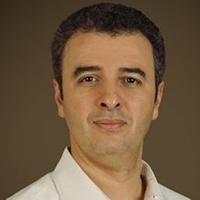Presentation
(A07) Poster from Qatar: Optimization and Parallelization of Charged Particle Detector Simulation
SessionHPC in Asia Poster Session
Event Type
HPC in Asia

HPC workflows
MPI
Parallel Algorithms
Parallel Applications
Visualization & Virtual Reality
TimeWednesday, June 27th10am - 11am
LocationAnalog 1, 2
DescriptionThe simulation of gas based detectors is a compute-intensive process. The simulation of complex scenarios such as those requiring gases with higher gains, high detector voltages, or fine-grained electric field meshes takes an enormous time to complete. These lengthy workloads typically run on HPC systems under a workload manager, and often require repeat submission when results exhibit unexpected behavior.
In this project, we incorporated three improvements in the simulation toolkit named Garfield++ that simulates particle detectors using gas and semiconductors as the sensitive medium. First, we optimized the element search operation in the mesh. The searching of a point in the electric field was discovered to be the most time-consuming section of code after profiling. This optimization reduced simulation time by a factor of 17. Second, we incorporated support for parallel computation using a distributed memory framework (MPI), enabling the simultaneous simulation of hundreds of events. Third, we coupled the simulator with a computational steering framework, VisIt, in order to monitor the behavior of the simulation while it ran. A user could now connect to a live simulation running on the remote cluster with the VisIt client on the desktop and visualize the trajectories of the electrons as they moved through the detector geometry. A simulation could also be paused, stopped or restarted with different parameters without requiring the re-submission of the job on the HPC system.
In this project, we incorporated three improvements in the simulation toolkit named Garfield++ that simulates particle detectors using gas and semiconductors as the sensitive medium. First, we optimized the element search operation in the mesh. The searching of a point in the electric field was discovered to be the most time-consuming section of code after profiling. This optimization reduced simulation time by a factor of 17. Second, we incorporated support for parallel computation using a distributed memory framework (MPI), enabling the simultaneous simulation of hundreds of events. Third, we coupled the simulator with a computational steering framework, VisIt, in order to monitor the behavior of the simulation while it ran. A user could now connect to a live simulation running on the remote cluster with the VisIt client on the desktop and visualize the trajectories of the electrons as they moved through the detector geometry. A simulation could also be paused, stopped or restarted with different parameters without requiring the re-submission of the job on the HPC system.
Speakers
Sr Lead Software Applications Developer
Sr Lead Systems Engineer

